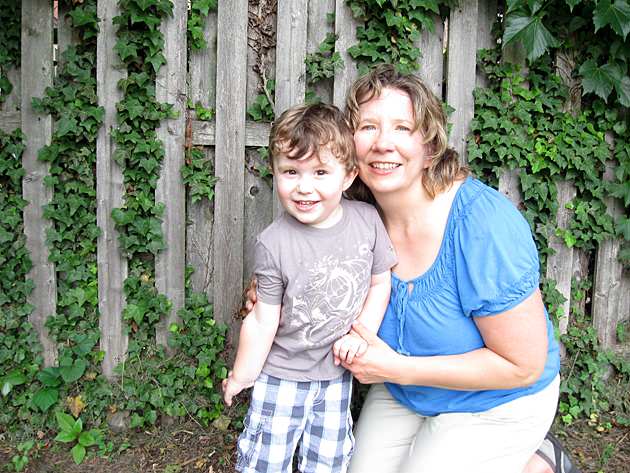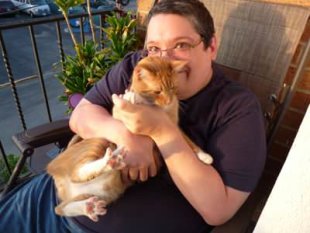Hearing his doctor utter the "o" word pushed Steven Bryan to shed weight.
At 6 feet and 287 pounds, he was morbidly obese, his doctor warned him in November 2011. That news forced the 50-year-old Anaheim, Calif., resident to re-examine his habits. He made some changes, dropped below 250 and now hovers around 257. His body mass index, however, is 34.9, which, according to the medical establishment, still makes him obese.
?I'm fat, and it's my fault,? Bryan says.
It?s no surprise, then, that he criticizes last week?s decision by the American Medical Association to classify obesity as a disease. Some experts say the decision increases the chance that doctors and insurance companies could more effectively treat the 78 million adults and 12 million children in the United States with BMIs above 30.

To Bryan, that wrongly fashions the medical establishment as a crutch?one with more meds and more billings for more doctor appointments.
He is one of several obese Americans who wrote this week on Yahoo News about their struggles with weight and their views on the AMA?s declaration. To see how they perceive their condition?described as ?a disability,? ?a disease,? ?a choice,? ?a wake-up call? or simply ?a challenge??we asked them the following questions: Does the AMA?s definition alter their outlook on obesity? Does calling it a disease help or hinder their personal weight battles? Is this a positive or negative step in battling the country?s bulge?
Bryan says the answer is clear. ?The AMA's declaration is nothing more than a happy pill designed to make overweight people like myself shift the blame for our own bad habits,? he writes.
?I ate what I wanted when I wanted: cookies, ice cream, chips, and other comfort foods. I overindulged to fill emotional voids in my life. In many ways, I followed the guidelines of Miss Piggy, the Muppet who said, ?Never eat anything you can?t lift.??
The key, he says, was his ?obnoxious and brutally honest? doctor, who encouraged him to trade in cookies for carrots.
He adds that his doctor had him recite what he ate the previous day and explained how his choices?for instance, ?an innocent bowl of unsweetened cereal? for breakfast?boosted the chance he?d snack immediately when arriving at work.
He now eats in moderation. He notes the occasional chocolate-frosted doughnut is OK and, importantly, his choice.
?The AMA gets a big fat ?F? from me for their enabling declaration,? Bryan says. ?If I want to change [my life], it's up to me. Over the last year, I made some lifestyle changes and have been keeping my weight under control, but I have more work to do.?
 Alyce Wilson and her son (Photo courtesy of Alyce Wilson)
Alyce Wilson and her son (Photo courtesy of Alyce Wilson)
Can a ?squishier? physique possibly be contagious?
Alyce Wilson plugged her numbers into a BMI calculator and read the result: 32.6.
?Imagine my joy when I learned that,? she says in jest.
So, she rounded up her actual height by a half-inch, to 5 foot 5 inches. ?Hey, I had to try,? she says.
Her BMI fell slightly?to 31.6. ?Depending on which height I use, I'd have to lose 10 to 15 pounds just to be considered overweight.?
Wilson, a 42-year-old mom who lives in Philadelphia, is on the fence about the obesity designation. She writes somewhat tongue in cheek that her newfound obesity ?disease? is a chronic condition that could kill her if left untreated.
The cause of her condition? Bad genes? Too many muffins? An out-of-whack thyroid? Nope.
?Much as I love him, I have my toddler to blame,? she says.
Before her pregnancy, Wilson dropped 70 pounds over five years and kept if off. ?But I was not one of those pregnant women who look like a snake that swallowed a basketball,? she says. ?I packed on 58 pounds and became an ancient fertility figure.?
Now, three years after the birth of her son, she?s halfway to losing her ?baby fat,? as she calls it. ?If only reading books aloud or changing diapers burned more calories.?
And when she plugged her numbers into the BMI calculator, she worried about what her ?squishier? composition will entail.
?What will this new ?disease? designation mean? Will people avoid me, fearing my fat is contagious?? she asks. ?It's also startling?and annoying?to learn I'm no longer considered healthy, especially when that isn't true. Two years ago, growing frustrated with the glacial pace of my postpartum weight loss, I consulted my physician. She ran a series of diagnostic tests that determined I was in the healthy range for everything she tested. Some obese people have associated health problems, but I'm not one of them.?
She does hope, however, that the AMA?s decision will expand coverage for weight-loss treatments and prevention and increase insurers? leeway.
?I'm cautiously optimistic,? Wilson says.
 Laura Cushing (Photo courtesy of Laura Cushing)
Laura Cushing (Photo courtesy of Laura Cushing)
Looking forward to a healthy future?with assistance
Tagging obesity as a choice ignores its complexity, Laura Cushing says.
Cushing, 43, carries 324 pounds on her nearly 6-foot frame. She?s down from 390 three years ago. ?While morbid obesity doesn't have a pleasant ring to it,? the West Berlin, N.J., resident writes, ?it's certainly preferable to some of the names I've been called in reference to my body size.?
Compounding her frustration over losing weight are the myriad costs. See the doctor? That?s a co-pay. Meet with a nutritionist? Another co-pay. Blood tests and body exams set her back even more. Weight Watchers, at $65 for three months of online tools and $15 for in-person meetings, is too pricey. The $400 annual gym membership is out of her budget.
And because Cushing is unsure about the exact cause of her being overweight, losing the pounds hasn?t been easy.
?Is my obesity a ?self-inflicted? disease?? she asks. ?I can pinpoint a number of factors: My father and his side of the family were all obese, meaning it is partially genetic. I have had limited access to healthy foods at times during my life that doubtlessly contributed. I suffered a crippling car accident that impeded my ability to be active for quite a while. And, yes, there's also just that I enjoy eating and haven't always made the best choices.?
She thus welcomes a change in how the country views obesity. ?But other steps are needed,? she argues. ?Education, individual action, and community support must be achieved as well. I am hoping that instead of pushing an agenda of diet drugs and surgeries, there will be more focus on treatments that include healthy eating and exercise.?
?It is a slow process,? she acknowledges.
Read more stories about personal battles with obesity:
Obesity's classified as a disease, but losing weight is on me
My obesity is my disease and my problem
Obesity disease classification will lead to overmedication
Does your BMI make you ill?
Being called fat was bad enough; now I am obese
Selena Gomez ariel winter Paige Butcher David Petraeus Petraeus Mia Love wall street journal
No comments:
Post a Comment
Note: Only a member of this blog may post a comment.